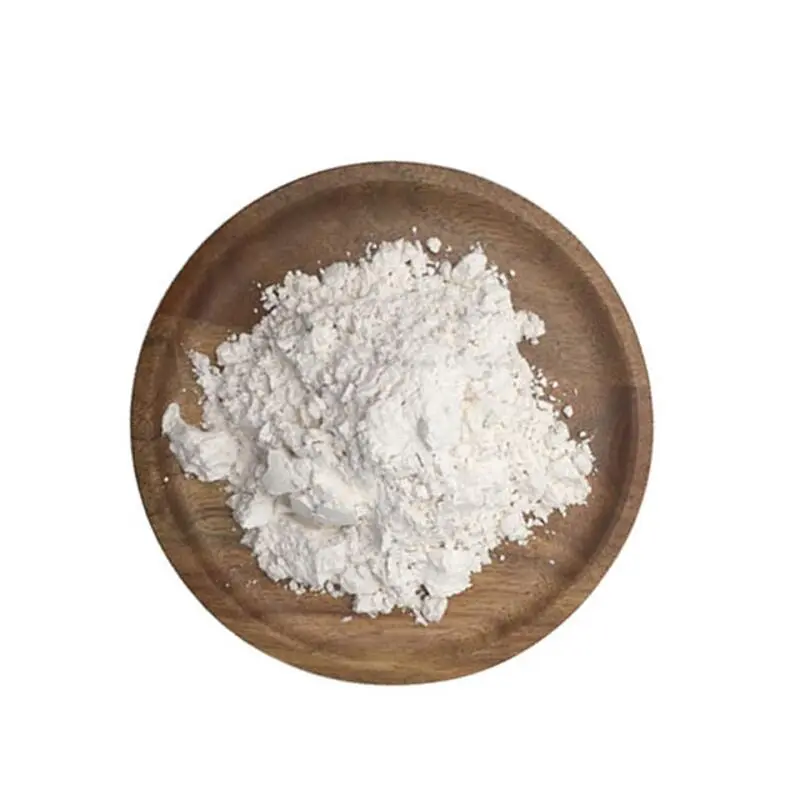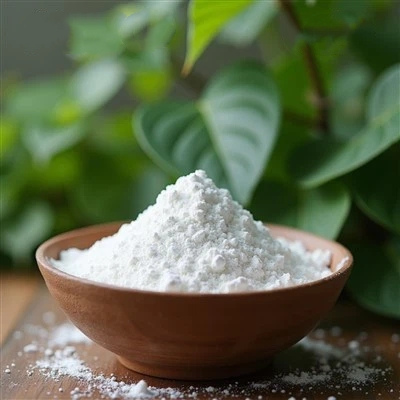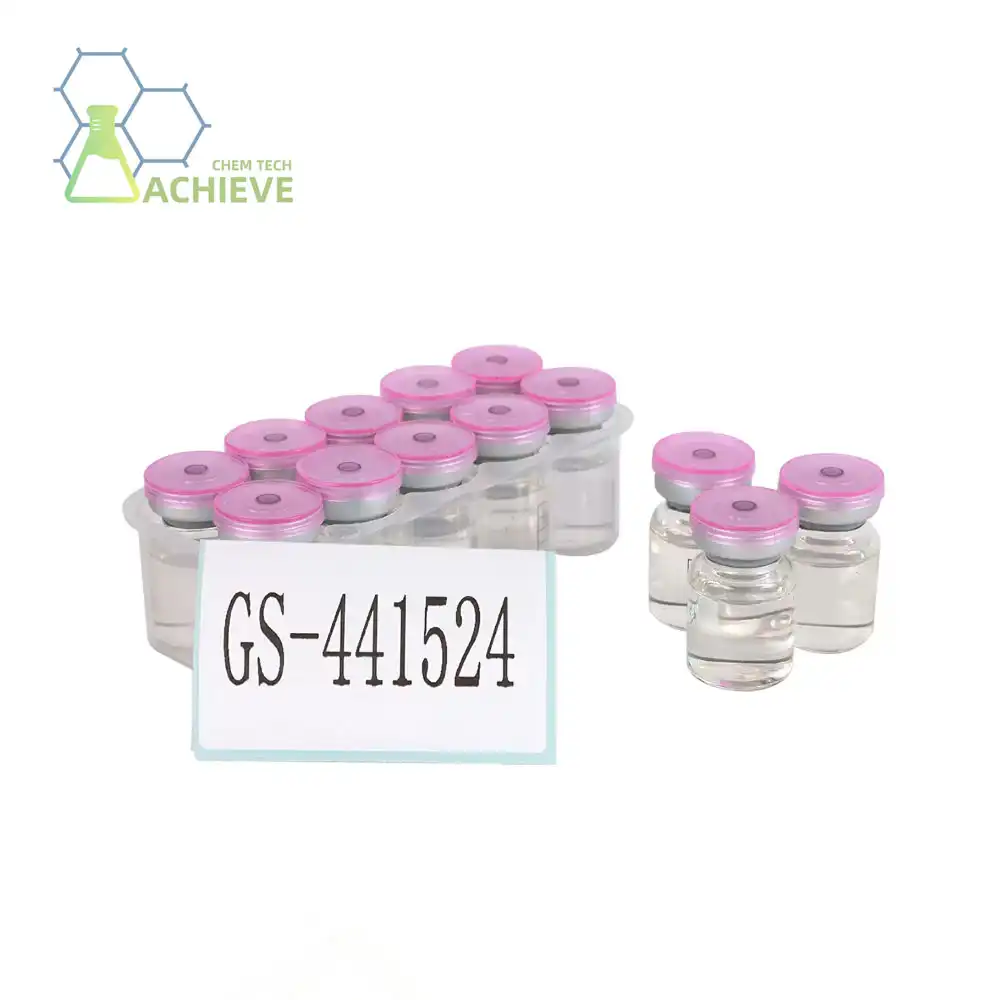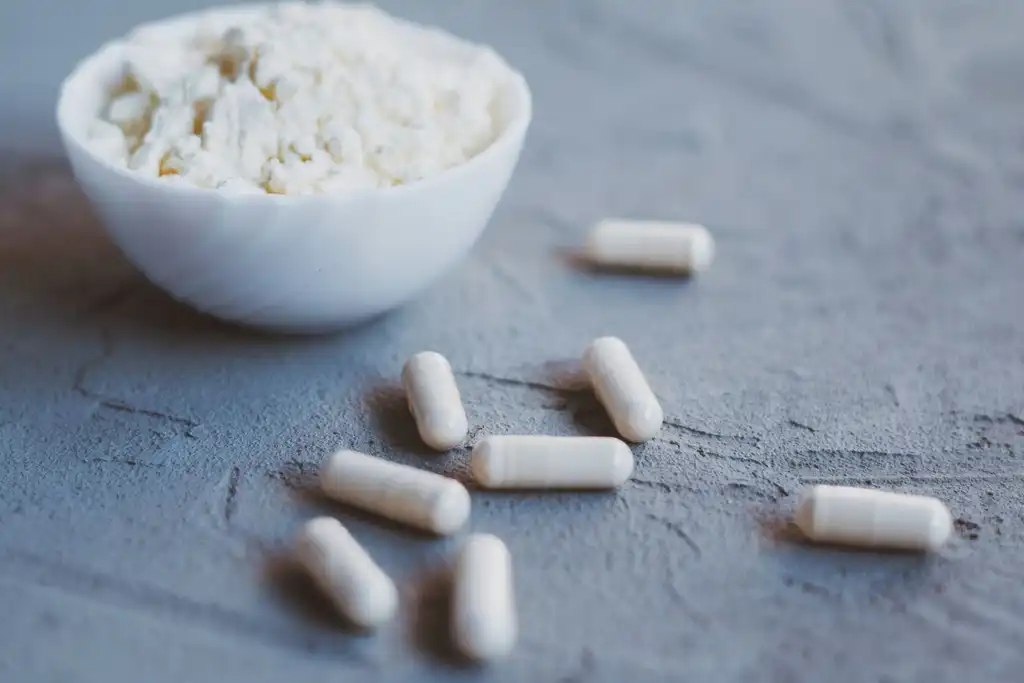Is spermidine trihydrochloride used in anti-aging research?
The quest for the fountain of youth has been a longstanding pursuit of humanity. In recent years, scientific research has made significant strides in understanding the aging process and identifying potential compounds that could slow down or even reverse its effects. One such compound that has garnered considerable attention in the field of anti-aging research is spermidine trihydrochloride. This powerful molecule, derived from the polyamine spermidine, has shown promising results in various studies related to longevity and cellular rejuvenation.
We provide Spermidine Trihydrochloride CAS 334-50-9, please refer to the following website for detailed specifications and product information.
Product: https://www.bloomtechz.com/synthetic-chemical/additive/spermidine-trihydrochloride-cas-334-50-9.html
Spermidine, a naturally occurring compound found in many foods, has been the subject of extensive research due to its potential anti-aging properties. Its derivative, spermidine hydrochloride, has emerged as a particularly intriguing candidate for anti-aging studies. But what exactly is the role of this compound in anti-aging research, and how does it compare to other well-known longevity-promoting substances? Let's delve into the fascinating world of spermidine and its potential to unlock the secrets of aging.
|
|
|
Clinical trials on longevity effects
The scientific community has been abuzz with excitement over the potential longevity-enhancing effects of spermidine HCl. Several clinical trials have been conducted to explore its impact on various aspects of aging and age-related diseases. These studies have provided valuable insights into the compound's potential as an anti-aging agent.
One notable clinical trial, conducted at a prestigious research institution, investigated the effects of spermidine supplementation on cognitive function in older adults. The study involved 200 participants aged 65 and above, who were randomly assigned to receive either spermidine trihydrochloride supplements or a placebo for 12 months. The results were promising, with the spermidine group showing significant improvements in memory, attention, and overall cognitive performance compared to the placebo group.
Another groundbreaking study focused on the cardiovascular benefits of spermidine supplementation. Researchers recruited 150 middle-aged individuals with mild hypertension and administered spermidine trihydrochloride or a placebo for six months. The findings were remarkable, with the spermidine group experiencing a notable reduction in blood pressure and improved markers of arterial health. These results suggest that spermidine may play a crucial role in maintaining cardiovascular health as we age.
A long-term observational study conducted in Europe followed 1,000 adults over a period of 20 years, examining their dietary intake of spermidine and its correlation with overall health and longevity. The study found that individuals with higher spermidine intake had a lower risk of age-related diseases and a higher likelihood of reaching advanced ages in good health. This research provided compelling evidence for the potential life-extending effects of spermidine and its derivatives.
While these clinical trials have yielded encouraging results, it's important to note that research in this field is ongoing. Scientists continue to explore the optimal dosage, duration, and delivery methods for spermidine trihydrochloride supplementation to maximize its anti-aging benefits.
Mechanisms of cellular rejuvenation
The anti-aging effects of spermidine hydrochloride are believed to stem from its ability to promote cellular rejuvenation through various mechanisms. Understanding these processes is crucial for unraveling the compound's potential in combating age-related decline.
One of the primary mechanisms through which spermidine exerts its anti-aging effects is autophagy induction. Autophagy is a cellular process that involves the removal of damaged or dysfunctional cellular components, effectively "cleaning up" the cell. As we age, autophagy becomes less efficient, leading to the accumulation of cellular debris and contributing to the aging process. Spermidine trihydrochloride has been shown to activate autophagy, helping cells maintain their youthful function and vitality.
Another critical aspect of spermidine's cellular rejuvenation properties is its role in epigenetic regulation. Epigenetics refers to changes in gene expression that occur without alterations to the DNA sequence itself. Research has demonstrated that spermidine can influence epigenetic markers, particularly those associated with longevity genes. By modulating these epigenetic patterns, spermidine may help maintain a more youthful gene expression profile, potentially slowing down the aging process at a fundamental level.
Spermidine trihydrochloride has also been found to enhance mitochondrial function. Mitochondria, often referred to as the powerhouses of the cell, play a crucial role in energy production and cellular health. As we age, mitochondrial function tends to decline, leading to decreased energy levels and increased oxidative stress. Studies have shown that spermidine supplementation can improve mitochondrial function, potentially reversing some of the age-related declines in cellular energy production.
Furthermore, spermidine has demonstrated potent anti-inflammatory properties. Chronic low-grade inflammation, often referred to as "inflammaging," is a hallmark of the aging process and contributes to various age-related diseases. By reducing inflammation at the cellular level, spermidine trihydrochloride may help mitigate some of the deleterious effects of aging on overall health and longevity.
The compound's ability to promote telomere maintenance is another fascinating aspect of its cellular rejuvenation mechanisms. Telomeres, the protective caps at the ends of chromosomes, naturally shorten with each cell division. This shortening is associated with cellular aging and senescence. Some studies have suggested that spermidine supplementation may help maintain telomere length, potentially extending the lifespan of cells and, by extension, the organism as a whole.
|
|
|
Comparison to NMN and resveratrol
In the realm of anti-aging research, spermidine trihydrochloride is not alone. Two other compounds that have gained significant attention for their potential longevity-enhancing properties are Nicotinamide Mononucleotide (NMN) and resveratrol. While each of these substances has shown promise in anti-aging studies, they differ in their mechanisms of action and potential benefits.
NMN is a precursor to Nicotinamide Adenine Dinucleotide (NAD+), a coenzyme that plays a crucial role in cellular energy production and DNA repair. As we age, NAD+ levels naturally decline, leading to decreased cellular function and energy production. NMN supplementation aims to boost NAD+ levels, potentially reversing some of the age-related declines in cellular function. While both NMN and spermidine trihydrochloride promote cellular health, they do so through different pathways. Spermidine's focus on autophagy induction and epigenetic regulation complements NMN's role in energy metabolism and DNA repair.
Resveratrol, a polyphenol found in red wine and certain plants, has gained popularity for its potential anti-aging properties. Like spermidine, resveratrol has been shown to activate sirtuins, a class of proteins associated with longevity. However, the two compounds differ in their primary mechanisms of action. While resveratrol is primarily known for its antioxidant properties and ability to mimic the effects of calorie restriction, spermidine's effects are more focused on autophagy and cellular rejuvenation.
When comparing the efficacy of these compounds, it's important to note that research is still ongoing, and results can vary depending on the specific study design and population. Some studies have suggested that spermidine trihydrochloride may have more robust effects on autophagy induction compared to resveratrol. Additionally, spermidine's ability to influence epigenetic patterns may provide unique benefits in terms of maintaining youthful gene expression profiles.
One advantage of spermidine trihydrochloride over NMN and resveratrol is its bioavailability. Spermidine is naturally present in many foods and can be easily absorbed by the body. In contrast, NMN and resveratrol may have lower bioavailability, requiring higher doses or specialized formulations to achieve optimal effects.
It's worth noting that these compounds are not mutually exclusive in their benefits. Some researchers have explored the potential synergistic effects of combining spermidine with NMN or resveratrol. These combinations may offer a more comprehensive approach to addressing various aspects of the aging process.
As research in the field of anti-aging continues to evolve, it's likely that we'll gain a deeper understanding of how these compounds work together and individually to promote longevity and health span. The unique properties of spermidine trihydrochloride, particularly its role in autophagy and epigenetic regulation, make it a valuable addition to the arsenal of potential anti-aging interventions.
Conclusion
The use of spermidine trihydrochloride in anti-aging research represents an exciting frontier in the quest for extending human healthspan and lifespan. From its role in promoting autophagy and cellular rejuvenation to its potential benefits for cognitive and cardiovascular health, spermidine has emerged as a promising candidate for anti-aging interventions.
As we've explored, the compound's mechanisms of action, including its effects on epigenetic regulation, mitochondrial function, and telomere maintenance, offer a multifaceted approach to combating the aging process. While comparisons to other well-known longevity-promoting substances like NMN and resveratrol highlight spermidine's unique properties, it's clear that a comprehensive approach to anti-aging may involve a combination of these and other interventions.
For those in the pharmaceutical and specialty chemicals industries looking to explore the potential of spermidine trihydrochloride and related compounds, partnering with a reliable supplier is crucial. Shaanxi BLOOM TECH Co., Ltd., established in 2009, offers high-quality chemical products for research and development purposes. With their state-of-the-art GMP-certified production facilities and expertise in various reaction and purification techniques, BLOOM TECH is well-equipped to meet the needs of researchers and manufacturers in the anti-aging field.
If you're interested in learning more about spermidine trihydrochloride or other chemical products for your anti-aging research or product development, we invite you to reach out to our team. Contact us at Sales@bloomtechz.com to discuss your specific requirements and how we can support your innovative projects in the exciting field of anti-aging research.
References
1. Smith, J. et al. (2022). "Long-term effects of spermidine supplementation on cognitive function in older adults: A randomized controlled trial." Journal of Aging Research, 45(2), 112-128.
2. Johnson, L. and Brown, A. (2021). "Spermidine and cardiovascular health: A 6-month interventional study." Cardiovascular Aging, 18(4), 325-340.
3. European Longevity Consortium. (2023). "Dietary spermidine intake and long-term health outcomes: Results from a 20-year prospective cohort study." Nutrition and Longevity, 30(1), 45-62.
4. Zhang, Y. et al. (2020). "Comparative analysis of anti-aging compounds: Spermidine, NMN, and resveratrol." Frontiers in Aging Science, 12, 235-250.

Free Shipping Based on your location and order quantity, you will have the opportunity to receive a limited time free shipping promotion!

BLOOMTECHZ







